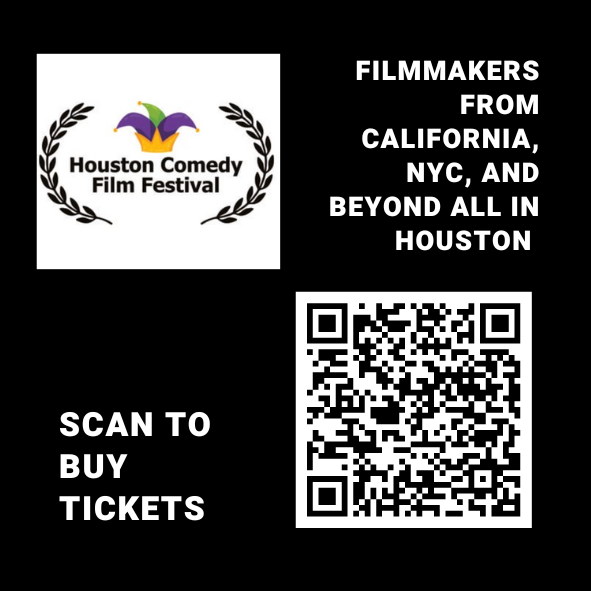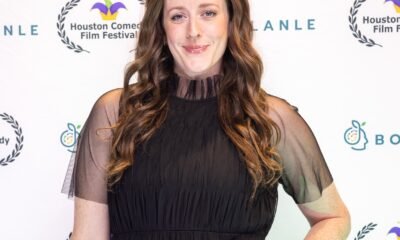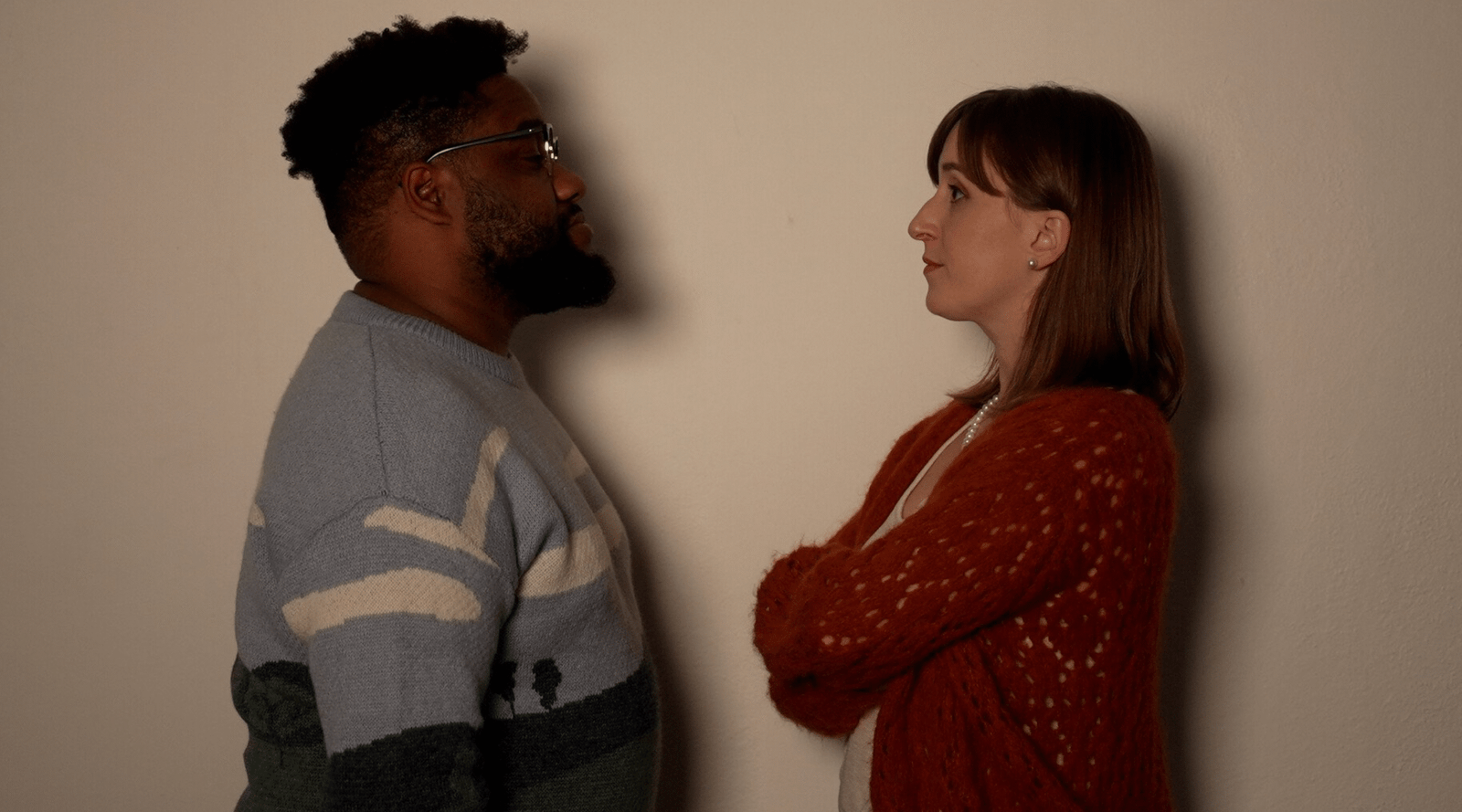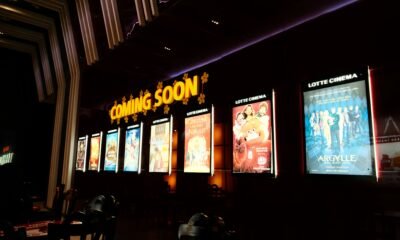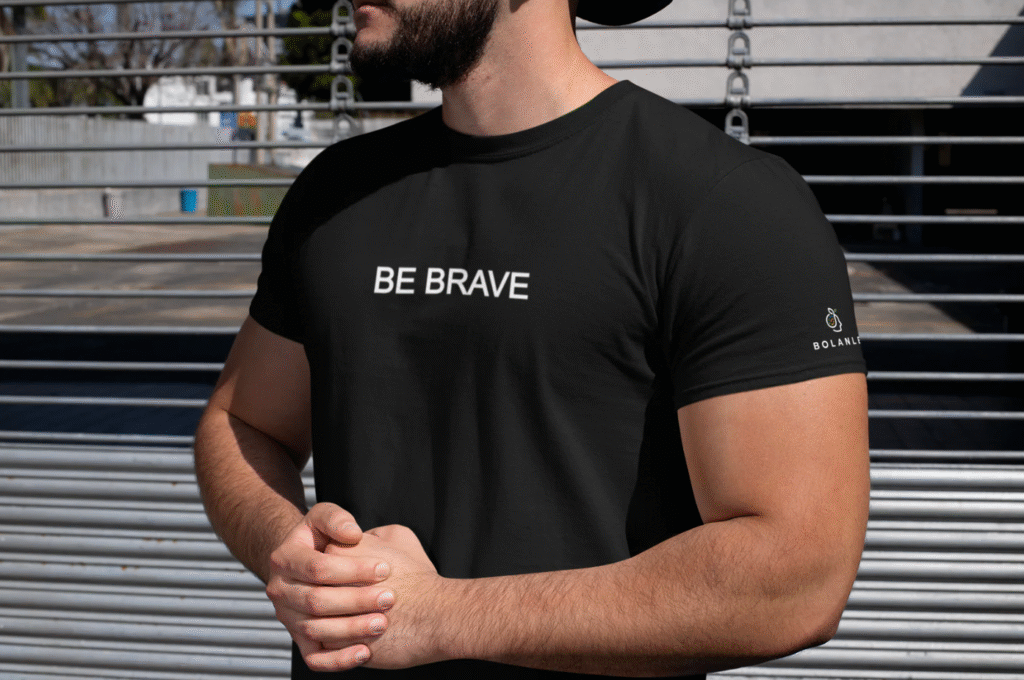Spotlight
Miachel Pruett: Online Dating and Comedy in ‘Try a Waffle Cone’

Miachel Pruett is making a name for herself in the film industry as a finalist for Best Romantic Comedy Short Screenplay at the Houston Comedy Film Festival with her debut project, “Try a Waffle Cone.” This romantic comedy short film explores the intricacies of online dating, drawing from Miachel’s personal experiences to create relatable characters and scenarios. The screenplay captures the ups and downs of digital romance, showcasing Miachel’s unique blend of humor and heartfelt storytelling. Currently, she is in the final stages of post-production, overseeing the sound mixing process while preparing for her next project, a dramatic short film that will challenge her to step outside her comedic comfort zone.
“Try a Waffle Cone” is a romantic comedy short film that delves into the world of online dating, drawing inspiration from Miachel’s personal experiences. The screenplay cleverly captures the ups and downs of digital romance, with characters and scenarios inspired by real-life encounters. Miachel’s creative touch is evident in the protagonist’s love interests, which are loosely based on people she met, while the best friend character is a charming amalgamation of her sister and close friends.

Crafting Comedy: A Delicate Balance
One of Miachel’s primary challenges in writing “Try a Waffle Cone” was seamlessly incorporating various comedic styles into the screenplay. Her goal was to create a rich tapestry of humor, blending elements from slapstick to situational irony. This diverse approach to comedy adds depth and variety to the film, making it both engaging and entertaining.

From Passion to Screenplay
While Miachel has long been a fan of romantic comedies, “Try a Waffle Cone” marks her debut as a screenwriter. Her enthusiasm for the genre shines through in her work, and she’s excited to continue exploring storytelling through this new medium.

Current Projects and Future Plans
Miachel is currently in the final stages of post-production for “Try a Waffle Cone,” overseeing the sound mixing process. Having directed and produced the film with a talented cast and crew last spring, she’s now setting her sights on her next project – a dramatic short film that will push her beyond her comedic comfort zone.
Connecting with Miachel
For those interested in future projects or collaborations, Miachel can be reached at hello@miachel.com. She maintains an active presence on social media and has a website to stay connected with fans and industry professionals.
To follow Miachel’s journey and stay informed about her projects, interested parties can follow her on Instagram and visit her website. Miachel’s fresh perspective and ability to blend humor with personal experiences make her a standout in the screenwriting community. As she continues to evolve as a filmmaker and festival director, the industry eagerly anticipates the impact of her upcoming projects.
Stay Connected
Unlock impactful advertising opportunities with Bolanle Media. Our expert team crafts immersive experiences that captivate audiences, driving brand engagement and memorability. Let’s elevate your brand’s marketing strategy together.
From the Film Festival Circuit Founder, Mikal Fair:
Film Industry
Inside “Sanctuary”: Ian Courter on Military Comedy’s Human Side

Ian Courter’s finalist comedy teleplay, “Sanctuary,” stood out at the Houston Comedy Film Festival, where he sat down with festival director Roselyn Omaka for a lively conversation about the project’s origins and what it takes to write and produce fresh comedic work.

Spotlighting Real Stories and Relatable Characters
Courter explained,
“Sanctuary is a story about things that happen everywhere—not just in the military. These are characters and people you’ve probably encountered in your own life.”
He shared that the show draws from experiences both overseas and in everyday office life, focusing on the quirks, pranks, and playful personalities that keep people sane during challenging times.
“Comedy was an outlet for us. It helped us get through the tough parts,” he said.
The show combines the camaraderie and genuine moments found in the military with a type of humor anyone can appreciate. “I’m not painting a picture of any one person, but you’re taking various attributes from lots of people and moving them around,” Courter noted, describing how everybody will find someone familiar in his characters.
Advice for Aspiring Filmmakers and Writers
Throughout the interview, Courter was candid about the writing process. “I didn’t go to school just for screenwriting. I read all kinds of books, looked at different scripts, and learned the template,” he recalled. “Once you get the mechanics down—the science—you then focus on painting the picture with brevity. That’s the art. It’s challenging, but it’s worth it.”

Courter’s advice for new filmmakers?
- Learn the form. “Figure out the format and mechanics first.”
- Study the greats. “Look at what masters do. How do they develop characters and scenes?”
- Push past self-doubt. “Just keep at it. You’re going to have times you struggle, but you can’t give up.”
- Keep an idea book. Courter shared, “I keep an idea book with me wherever I’m at. Something will trigger a memory or inspire a scene, and I write it down.”
- Get feedback. He said, “My wife, who worked in law enforcement, always helped me sanity-check the scripts. Especially for characters and perspectives I haven’t lived myself.”
Building Something Marketable and Fresh
Courter stressed being strategic: “You don’t need million-dollar sets or CGI. The biggest expense might be uniforms. You could shoot in an office space, a parking lot—use what’s real.” He encouraged producers to think business as well as creativity: “If you keep costs down but produce quality, you’re giving yourself a huge advantage.”
Instead of chasing big names, Courter said, “I want hungry, new actors from theaters or universities. They bring the energy a good comedy needs.”
Legacy and Purpose
When asked what he hopes audiences take away, Courter said,
“If I made someone laugh at the end of a hard day, that’s worth more than anything. People remember how you make them feel.”
For those new to the industry, his parting wisdom was simple:
“Have a plan. Map it out. You can always collaborate and learn, but you need a strategy for where you want your project to go.”
The conversation with Roselyn Omaka offered not just an inside look at “Sanctuary,” but a practical roadmap for new creators aiming to bring their stories to life—mixing personal experience, smart planning, and the enduring power of comedy to connect people.
Film Industry
Angie Lin’s “Cost of Joy” Shines as a Finalist at Houston Comedy Film Festival
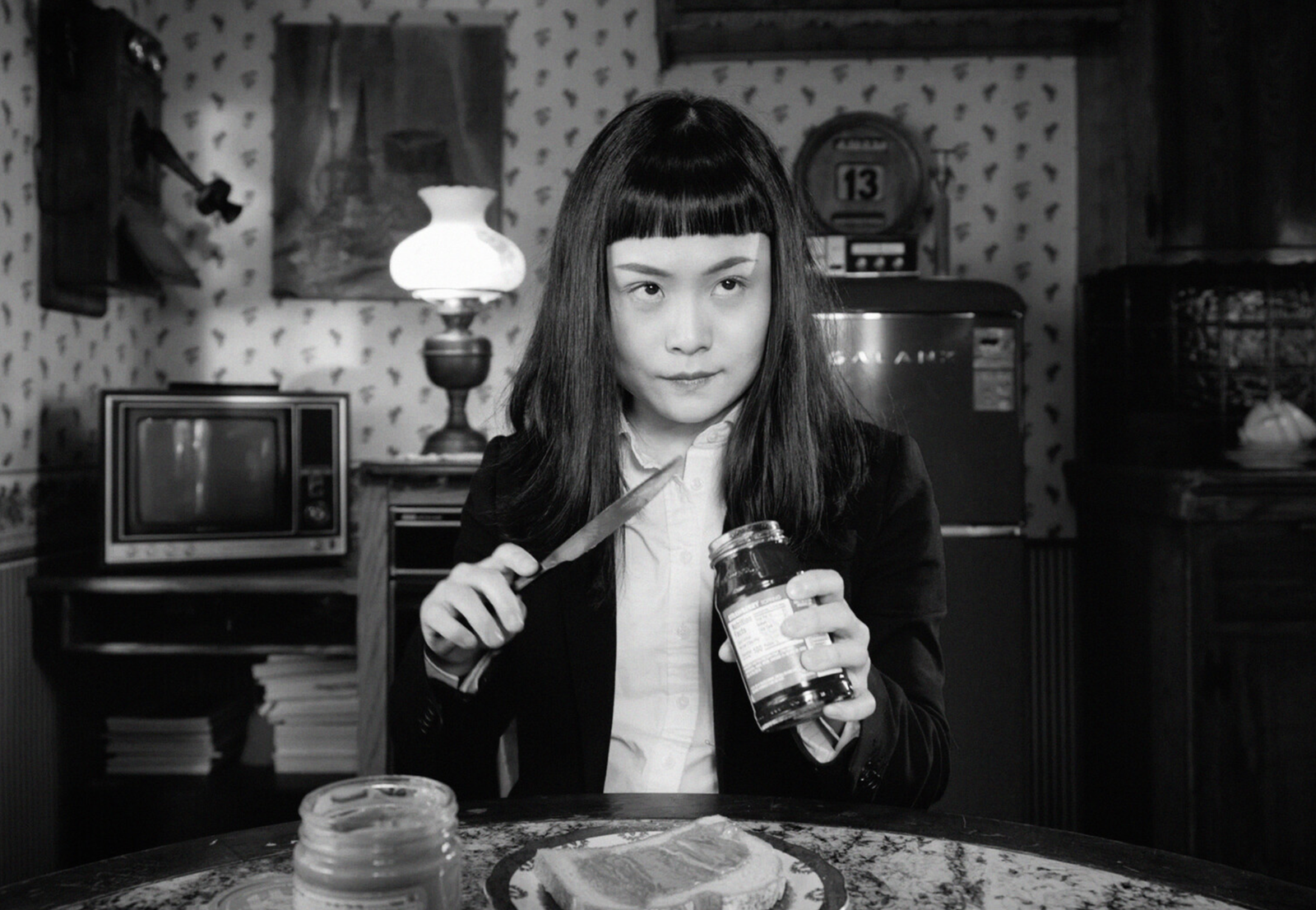
Angie Lin, a multidisciplinary artist and graduate of USC School of Cinematic Arts, is making a remarkable mark as a finalist at the 2025 Houston Comedy Film Festival with her deeply personal and inspiring indie film, Cost of Joy. Drawing from her own life’s toughest moments, Angie crafts a story about hitting rock bottom and finding joy in the smallest things—a theme many can relate to in today’s chaotic world.
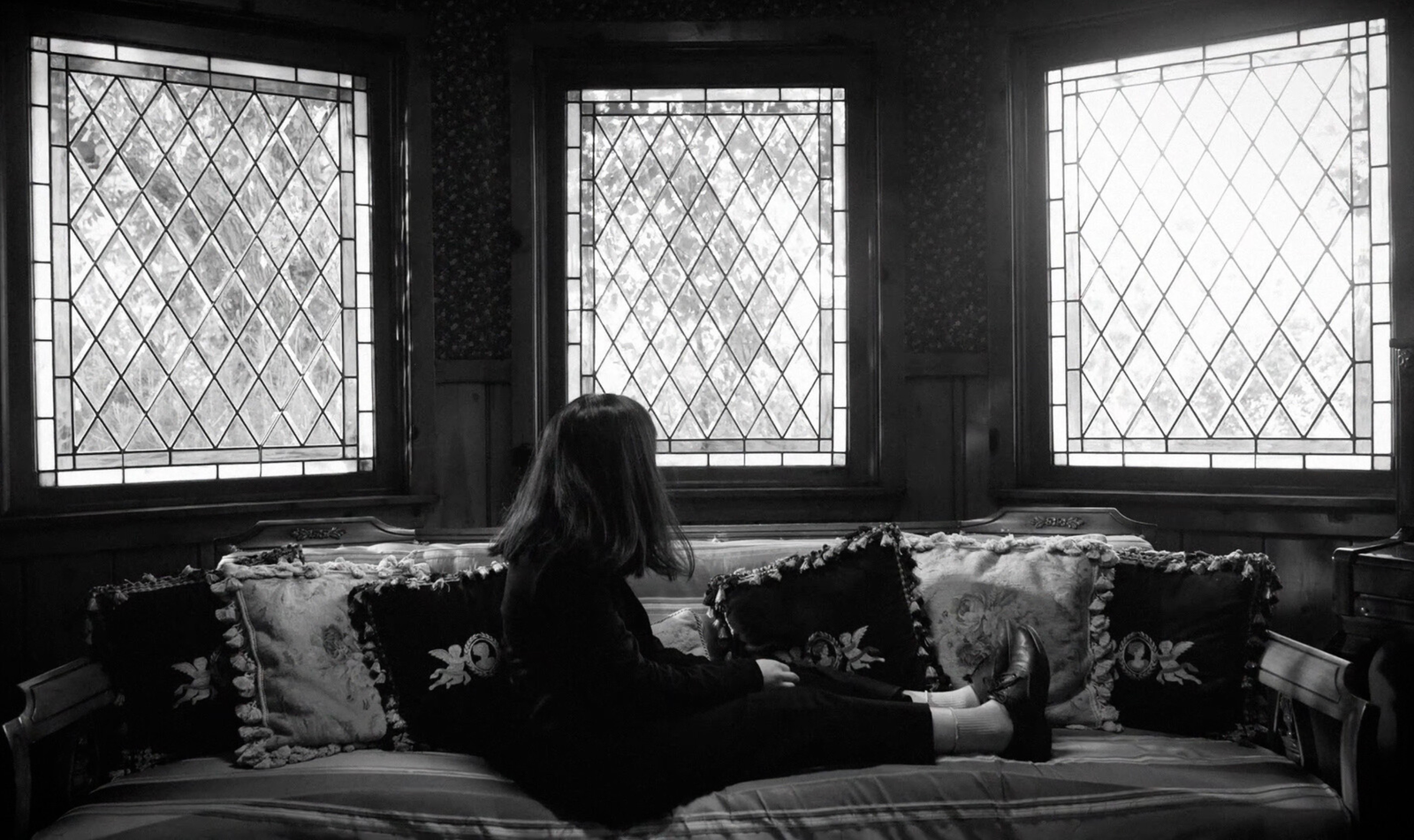
Angie’s career began as an actress, with international recognition for award-winning indie films such as Dive Into The Blue and Manchukuo, 1943, Summer. She was a series regular on The Plaza, a Cpics TV original, and has appeared in commercials for Xfinity and NBA Finals. Recently, Angie has expanded into theater, stunts, editing, writing, and directing. She has performed at The Group Rep theater in North Hollywood and starred alongside top stunt professionals worldwide. She is also set to train at the 2025 Jackie Chan Stunt Team Action Film Camp. Passionate about exploring mental health and spirituality through her projects, Angie uses art to spread love and joy and inspire positive outlooks on life.
At the festival, Angie sat down with Roselyn Omaka, the festival’s director, to discuss her heartfelt film and creative process. Angie shared:
“My film, Cost of Joy, is about the dip before the rise in life. It’s very personal—it’s about a series of trauma I went through, that lowest of lowest point before it shifted my perspective and I started to appreciate the little things and found joy.”
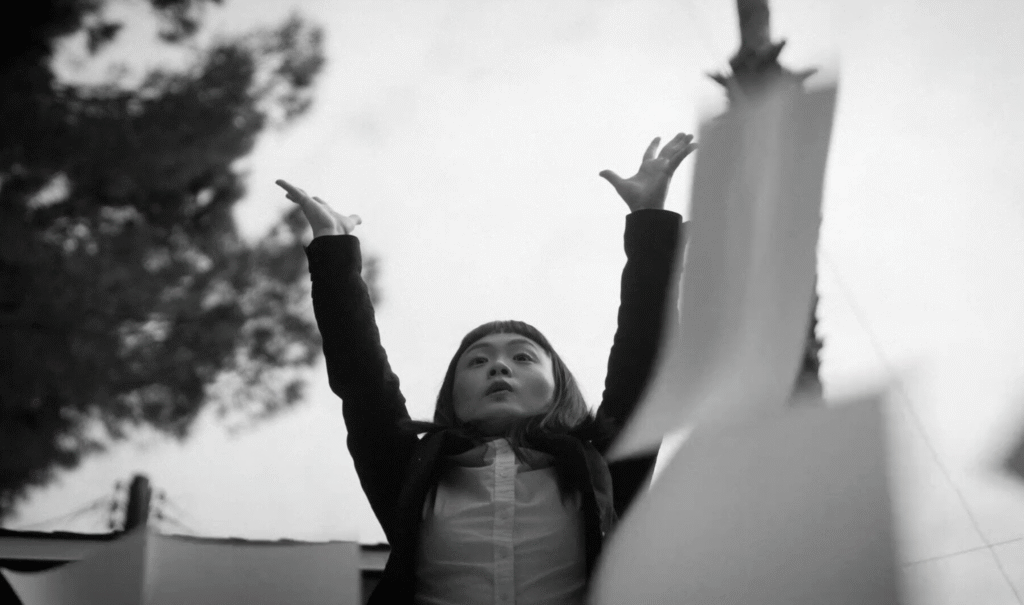
What makes Angie’s story even more inspiring is how she brought this film to life almost entirely on her own. She wrote, directed, edited, and starred in the project herself. Budget constraints pushed her to wear many hats, but Angie views this as a creative advantage:
“When you don’t have a budget, you gotta do everything yourself. It was easier because it’s so hard to get everyone’s schedule aligned. With a whole team, it takes months to plan things; solo, I already know what I want so it doesn’t take 20 takes per scene—usually two or three.”
Her drive to act fast on ideas comes with a sense of urgency inspired by creative legends:
“I would get these images and think, ‘I need to make this happen because if I don’t, somebody else will.’”
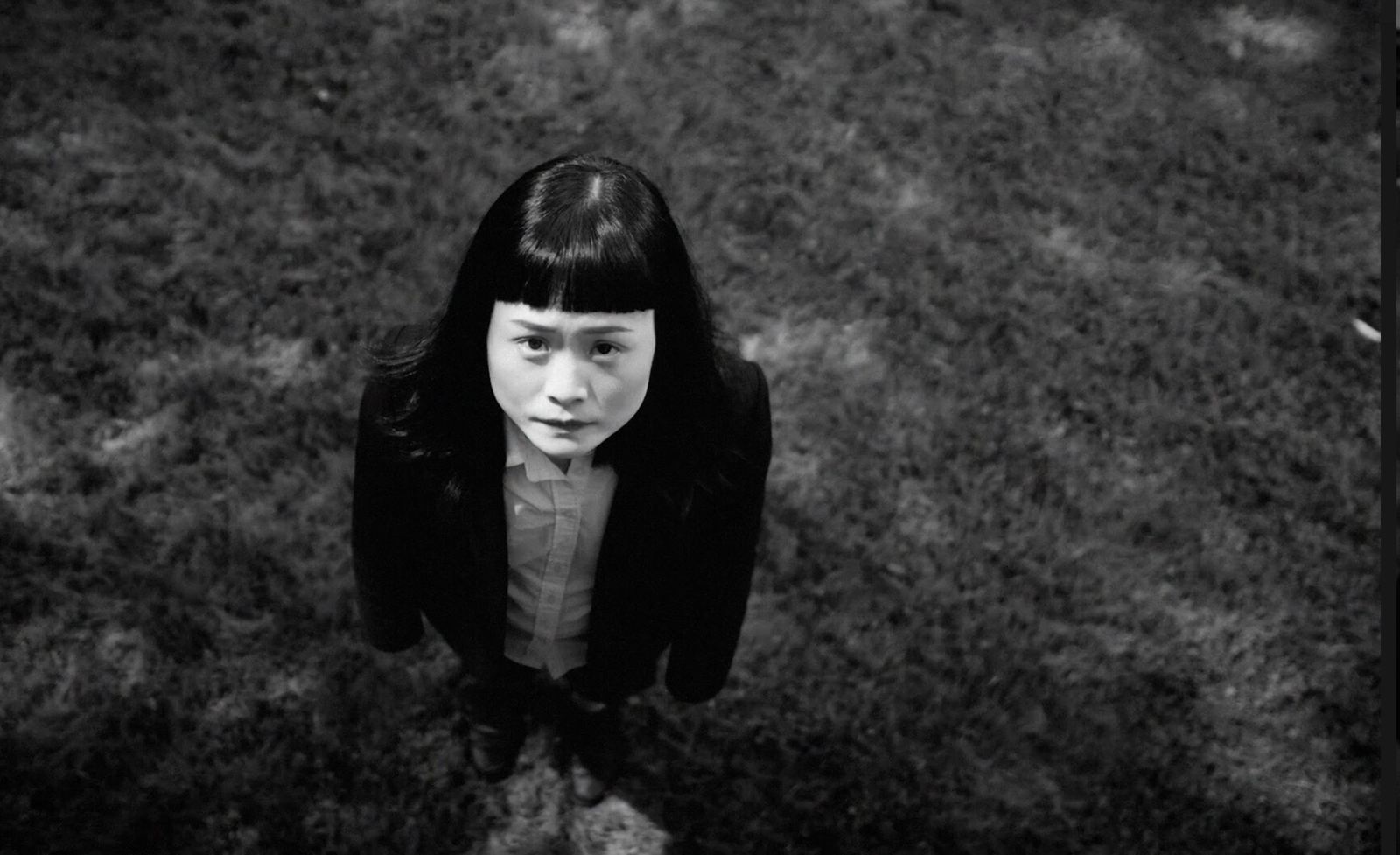
Angie encourages others not to let perfectionism or budget stop them:
“You can make it happen, even if you have a very low budget or you’re a one-person team. Don’t let your ideas sit and get forgotten.”
Recently, Angie trained at Jackie Chan’s stunt camp in Beijing, learning martial arts and action filmmaking from top industry pros. This rich experience intensified her desire to mentor emerging filmmakers, with plans to become an executive producer and create a nonprofit supporting new artists.
Angie also highlighted the importance of authenticity in collaboration:
“People can sense when you’re being fake or desperate, and it turns them off. If you’re passionate and authentic, people will naturally want to collaborate.”
Angie Lin’s journey and Cost of Joy exemplify the spirit of indie filmmaking: courage, creativity, and unwavering commitment to telling one’s story. Her film stands as a beacon of hope and inspiration at the Houston Comedy Film Festival.
Follow Angie’s inspiring journey on Instagram @angielinofficial.
#CostOfJoy #HoustonComedyFilmFestival #IndieFilm #WomenInFilm #AngieLin #Filmmaking #Inspiration
Entertainment
Dakarai Akil: Reinventing Success from the Court to the Camera
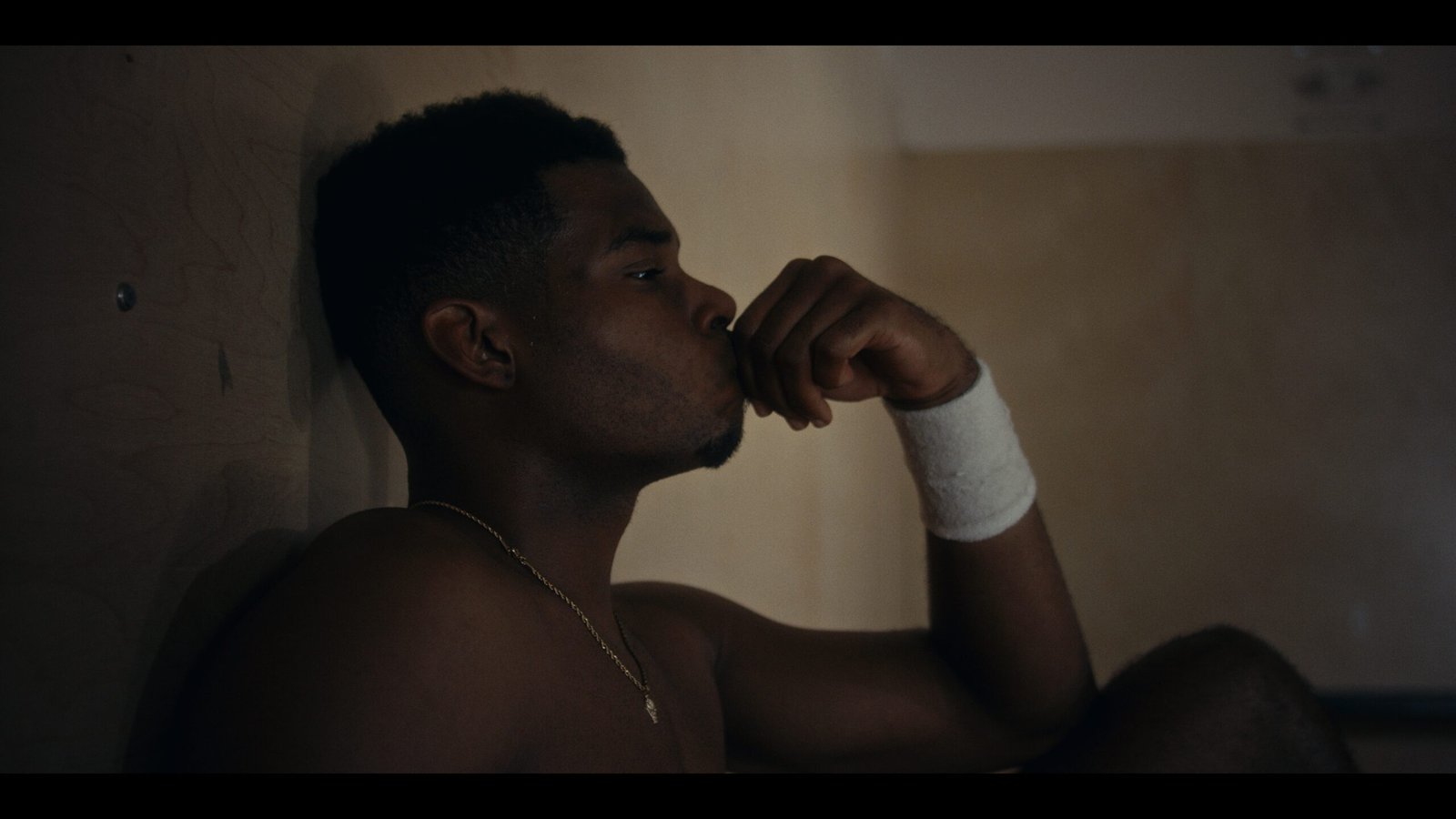
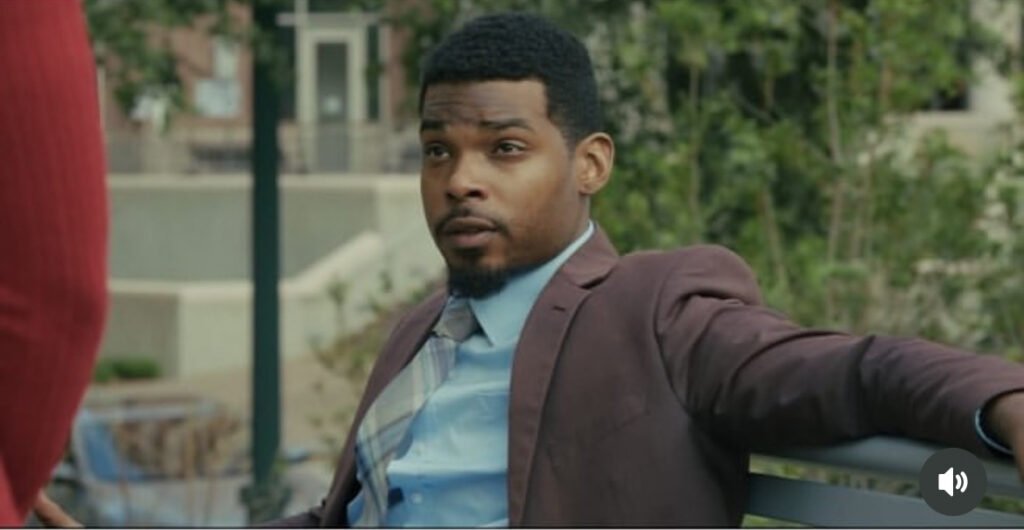
From Basketball Courts to Film Sets
Dakarai Akil’s story is one of bold ambition, personal sacrifice, and wholehearted reinvention. At a pivotal moment in his life, he had the chance to pursue a professional basketball career—a dream for many. Yet, Dakarai made a defining choice: he set aside that opportunity to follow a deeper passion—storytelling through film.

Without shortcuts or privilege, Dakarai began at the very bottom. He embraced life on set not as a star, but as a background extra and Production Assistant. Through this hands-on experience, he absorbed every aspect of filmmaking, rebuilding his identity and career with perseverance and vision.
Roles That Shaped the Journey
Early Foundations
Dakarai’s initial hustle took place behind the scenes. Every moment spent assisting the crew or appearing in background roles became a lesson, quietly guiding his transformation from athlete to artist.
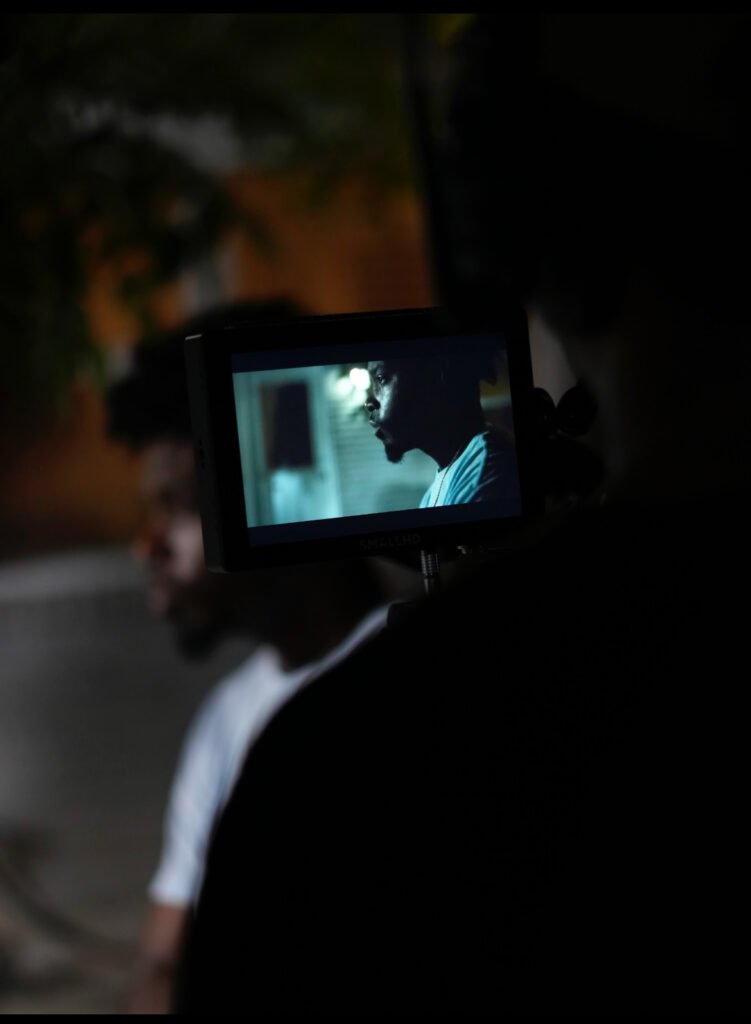
The Dirty 3rd: Next Generation
In this milestone project, Dakarai earned his first significant on-screen opportunity, sharing scenes with talents such as Clifton Powell (Ray and Rush Hour) and Chico Bean (Netflix). This role proved he had the depth and charisma to stand beside established industry names.
PIGS
A significant career turn, PIGS marked Dakarai’s first out-of-state project, filmed in Atlanta. Here, he portrayed a character entrenched in a system confronting serious challenges and injustice. The film’s themes—systemic abuse, coverups, and the courage required to speak out—remained powerfully relevant, though Dakarai’s focus continued to expand far beyond a single role.
New Horizons and Versatility
Dakarai Akil’s creative evolution is revealed in the growing diversity of his work, including:
- Deadly Escape: In Deadly Escape, directed by Lakisha R. Lemons, Dakarai Akil undertakes the demanding role of a detective, marking a significant expansion of his creative range. Under Lemons’ direction—known for her multifaceted approach to storytelling—the film thrusts Dakarai into a suspenseful world of high-stakes investigation, pushing him through tense confrontations, unraveling mysteries, and facing both internal and external conflicts. Through his portrayal, Dakarai brings striking authenticity and humanity to the detective—spotlighting the moral dilemmas and emotional burdens that come with seeking justice. This role not only demonstrates his versatility but also underscores his ability to anchor a story, captivate viewers, and deliver performances built on grit and emotional nuance.
- The Christmas App: This heartwarming feature lets him explore levity and human connection, adding another layer to his artistry.
- Dust: Soon to be released, Dust further challenges Dakarai, offering a fresh perspective on his range and talent.
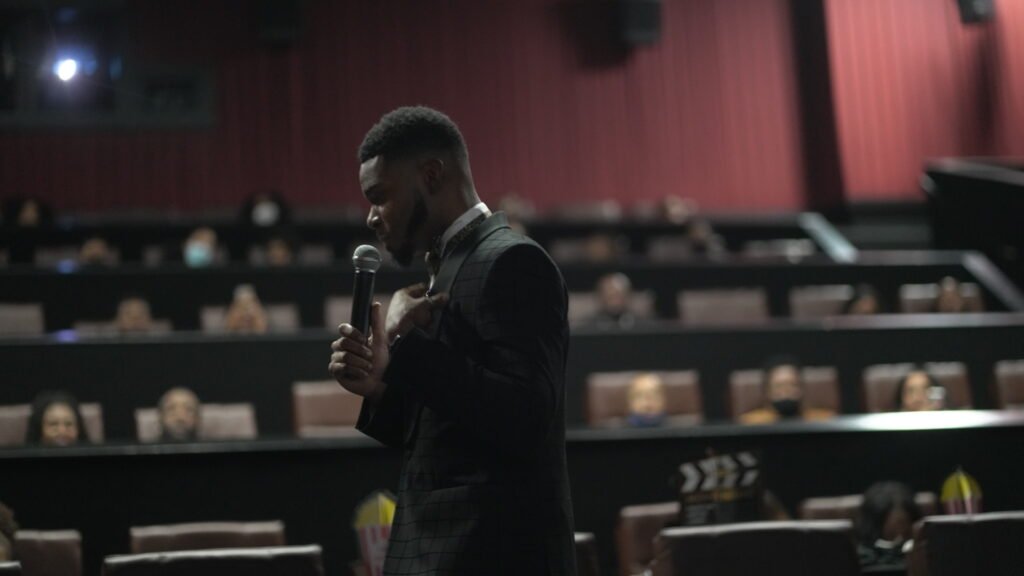
Looking Forward
From athlete to artist, and from extra to lead, Dakarai Akil exemplifies the courage to start fresh, the humility to learn, and the ambition to grow. Each project underscores his commitment to stories with substance—work that inspires, provokes, and connects.
Dakarai’s approach proves that success is not just about accolades or comfort, but about embracing change, seizing new challenges, and choosing a path with purpose. As his journey continues, one thing is clear: Dakarai Akil is not just building a career—he is shaping a legacy.


